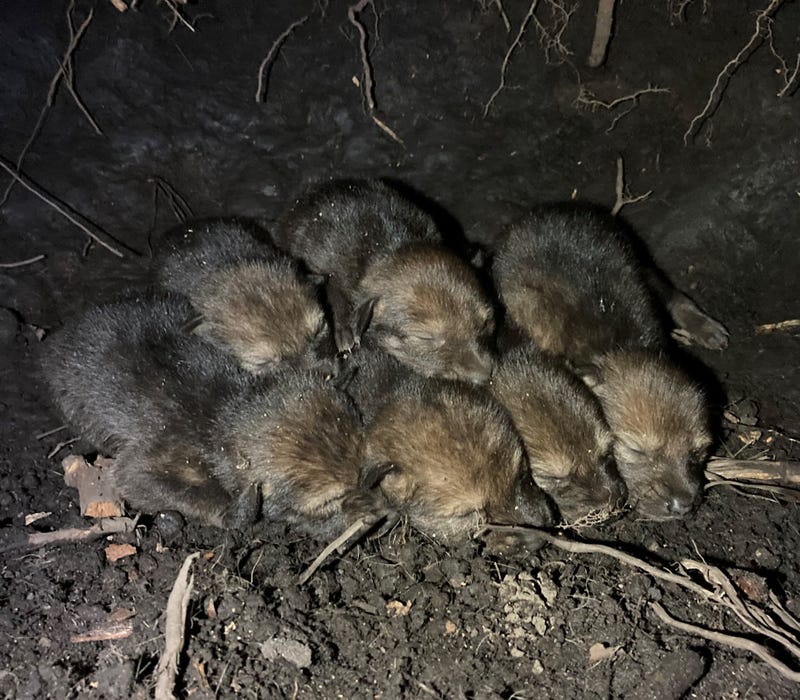
This might just be the cutest news you read about all day.
For the first time in four years, a litter of pups has been born to a red wolf, considered one of the most endangered species in the world.
The litter of six pups was born to a wild red wolf pair in the Alligator River National Wildlife Refuge in eastern North Carolina during the week of April 18, according to the U.S. Fish and Wildlife Service's Red Wolf Recovery Program. The brood includes four females and two males.
"As the sights and sounds of spring began to unfold on Alligator River NWR this April, something monumental was also unfolding on the landscape... a new litter of red wolf pups and renewed hope for survival of a species," the program posted on Facebook, along with photos of the pups. "This new litter is the first wild-born litter of red wolves since 2018."
"This red wolf pair was formed through the combination of several management actions and the two red wolves subsequently following their natural instincts in pairing, establishing their territory and mating," the program added. "Every generation yields a new born hope for the red wolf... a cause for joy and celebration!"
The U.S. Fish and Wildlife Service in February announced plans to revitalize its red wolf recovery program, according to the Center for Biological Diversity, which called the birth "significant news for the near-extinct species."
"It's tremendously encouraging to see the agency trying to protect and recover wild red wolves again. My heart is filled with hope at the sight of a new generation of red wolves taking their rightful place on the landscape," Perrin de Jong, North Carolina staff attorney at the Center, said in a statement. "There's a clear cause-and-effect relationship between the Service's recovery efforts and the survival and reproduction of red wolves in the wild."
Red wolves were once abundant across the Southeast but are now the rarest canine predator on earth. Only 20 are known to remain in the wild, living in five sparsely populated areas of eastern North Carolina, according to the Center for Biological Diversity.


